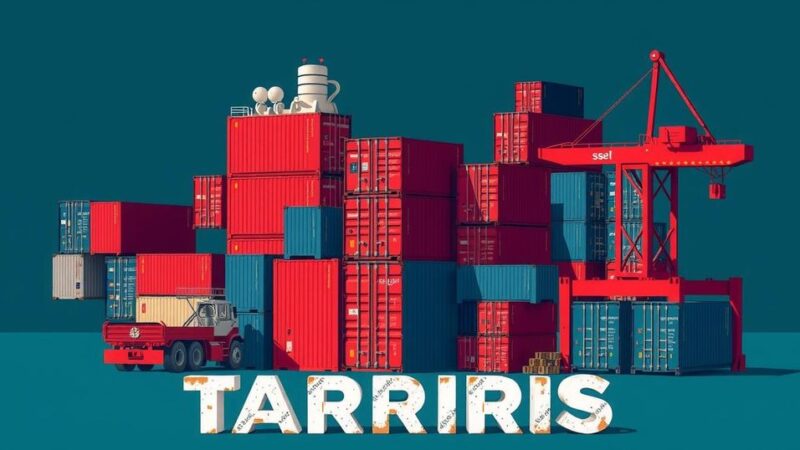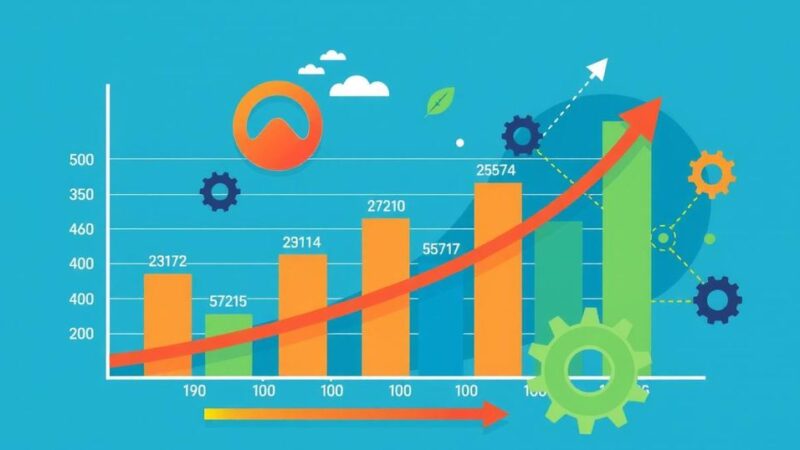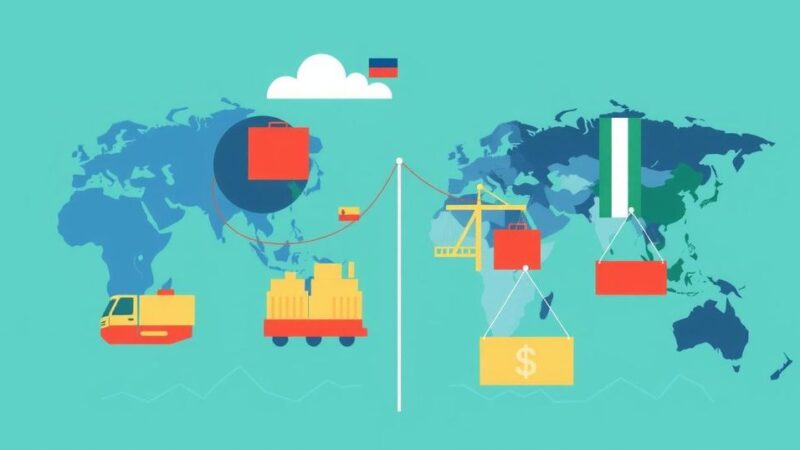The IMF has cautioned that St. Vincent and the Grenadines and other low-income nations are at risk of economic collapse due to increasing debt distress. The expiration of the G-20’s debt relief initiatives and the ongoing effects of the COVID-19 pandemic could exacerbate the situation. Urgent action is needed to restructure debts and provide support to mitigate these financial challenges.
The International Monetary Fund (IMF) has issued a stark warning that St. Vincent and the Grenadines, along with several low-income countries, is at risk of economic collapse. As of now, approximately 60% of the world’s poorest nations are facing or are already experiencing debt distress, which was highlighted by IMF officials Kristalina Georgieva and Ceyla Pazarbasioglu. The nations specifically mentioned include Haiti, Kiribati, the Maldives, and others, all of which are at significant risk.
The looming expiration of the Group of 20’s (G-20) debt-service suspension initiative at the year’s end, coupled with rising interest rates, poses a serious threat to low-income countries’ ability to manage their debts. IMF leaders emphasized that without an agreement from G-20 creditors to expedite debt restructuring and defer debt service during negotiations, some countries could face severe economic decline.
The COVID-19 pandemic has severely impacted the world’s most vulnerable economies, leading to a recession that could push over 100 million people into extreme poverty, according to World Bank estimates. The emergence of the omicron variant has further complicated recovery efforts as it sparks renewed waves of infections.
Georgieva and Pazarbasioglu appealed to the G-20 to enhance the common framework to facilitate loan restructuring for poorer nations. This strategy, initiated in November 2020, has faced numerous delays and a general lack of participation from debtor countries, with only three of the 73 eligible nations — Chad, Ethiopia, and Zambia — applying. The expiry of the debt-service relief program will compel participating countries to resume their debt service payments.
According to a July 2021 IMF report, St. Vincent and the Grenadines’ economy contracted by 3.8% in 2020, largely due to a 70% decline in tourism activity. Predictions indicated stagnant growth for 2021 ahead of an eruption that further hindered the tourism sector. The IMF projects an economic contraction of 6.1% for the island in 2021, with agriculture being particularly vulnerable due to the La Soufriere eruption.
The IMF’s warning highlights the precarious economic situation facing St. Vincent and the Grenadines and other low-income countries, exacerbated by rising debt levels and the COVID-19 pandemic. Urgent reformation of existing debt handling frameworks is essential to prevent economic collapse and alleviate the growing pressures on vulnerable nations. With tourism and agriculture significantly impacted, immediate action from the G-20 creditors is crucial to stabilize these economies moving forward.
Original Source: wicnews.com






